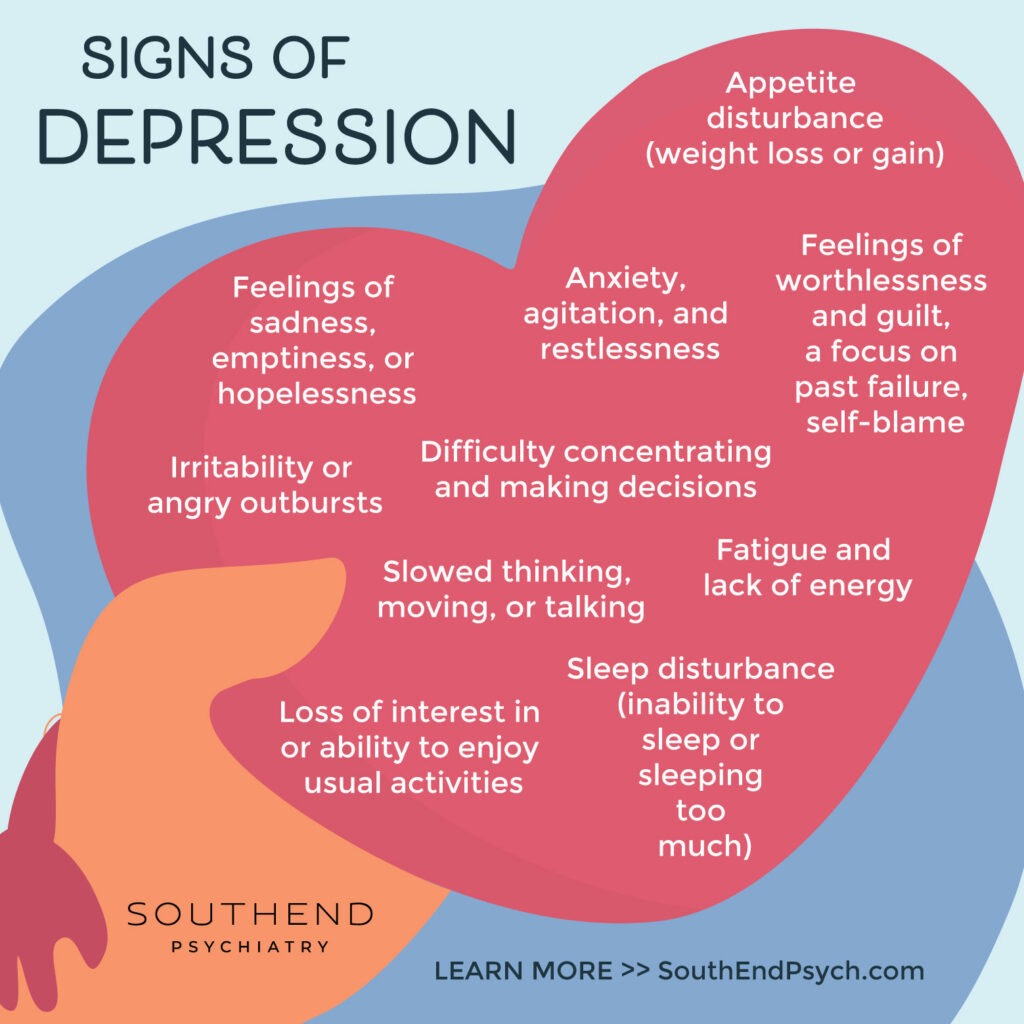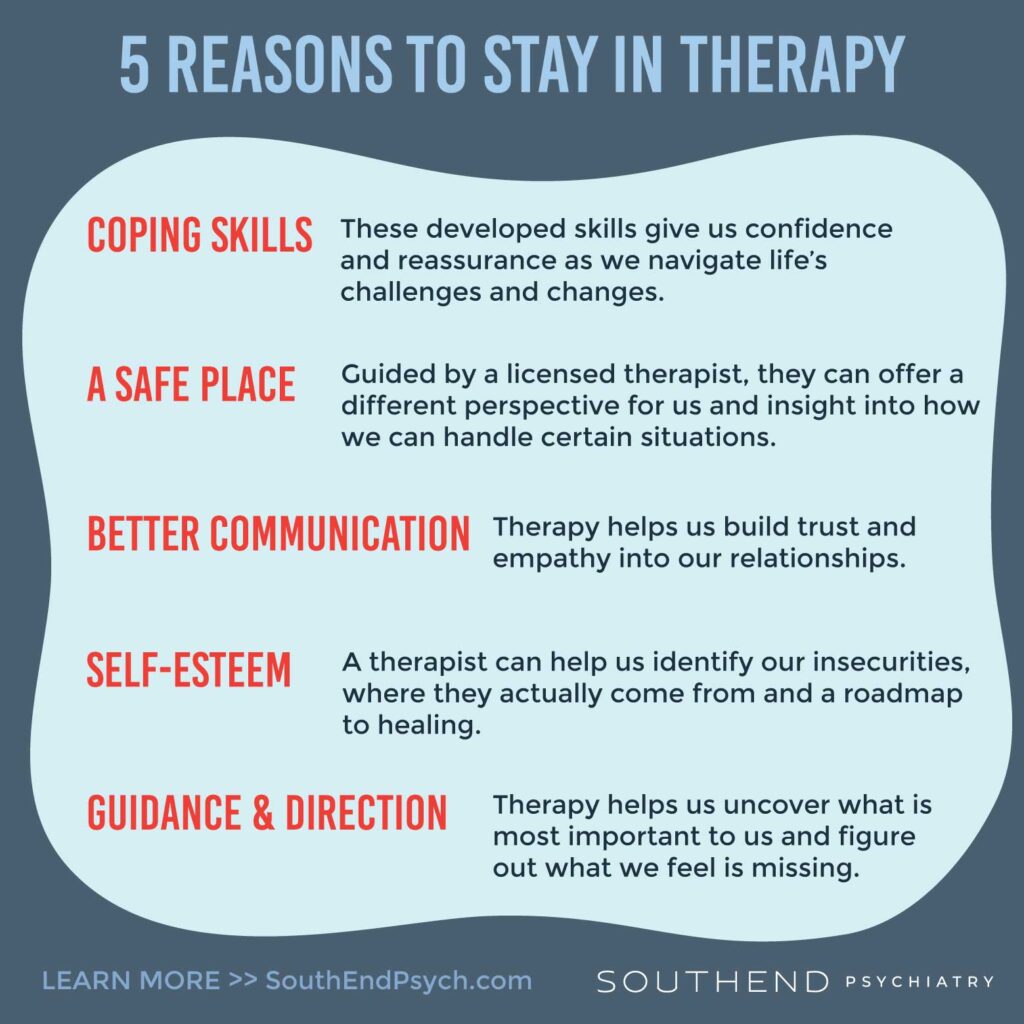In today’s digitally connected world, social media has become an integral part of daily life for millions of people. Platforms like Facebook, Instagram, Twitter, and TikTok offer numerous benefits, including the ability to stay connected with friends and family, share experiences, and access information quickly. However, the pervasive use of social media also raises concerns about its impact on mental health. This month, SouthEnd Psychiatry explores the multifaceted effects of social media on mental well-being, highlighting both the positive and negative aspects.
Positive Impacts of Social Media on Mental Health
That’s right, it’s not all bad. Let’s first shed light on three positive ways social media is impacting our society.
- Connection and Support: Social media allows individuals to maintain relationships, even across long distances. It provides a platform for people to share their struggles and receive support, which can be particularly beneficial for those dealing with mental health issues. Online support groups and communities offer a sense of belonging and can be a vital resource for individuals seeking understanding and empathy.
- Awareness and Education: Social media plays a significant role in raising awareness about mental health issues. Campaigns, personal stories, and informational content shared on these platforms help destigmatize mental health conditions and encourage people to seek help. Increased visibility and dialogue around mental health can lead to greater acceptance and understanding.
- Access to Resources: Many mental health organizations and professionals use social media to disseminate valuable information, coping strategies, and resources. This easy access to expert advice and support can empower individuals to take proactive steps in managing their mental health.
Negative Impacts of Social Media on Mental Health
Now, we turn our attention to the aspects of social media that are raising BIG alarms here at SouthEnd.
- Comparison and Self-Esteem: One of the most significant negative effects of social media is the tendency for users to compare themselves to others. The curated and often idealized portrayals of life on social media can lead to feelings of inadequacy, low self-esteem, and envy. Constant comparison can contribute to depression and anxiety, particularly among young people.
- Cyberbullying: The anonymity and reach of social media can facilitate cyberbullying, which can have severe consequences for mental health. Victims of online harassment may experience increased anxiety, depression, and in extreme cases, suicidal thoughts. The pervasive nature of social media means that negative interactions can follow individuals wherever they go, making it difficult to escape.
- Addiction and Time Management: Social media can be highly addictive, leading to excessive use that interferes with daily life. Spending too much time on social media can result in neglect of real-world relationships and responsibilities, leading to feelings of isolation and loneliness. Additionally, the disruption of sleep patterns due to late-night social media use can negatively impact mental health.
- Misinformation and Negative Content: The spread of misinformation and exposure to negative content on social media can exacerbate mental health issues. False or misleading information about health, politics, or other important topics can create confusion and stress. Furthermore, exposure to graphic or distressing content can trigger anxiety and other emotional responses.
Balancing the Scales: Mitigating Negative Effects
While social media has its drawbacks, there are ways to mitigate its negative impact on mental health:
- Mindful Use: Being mindful of social media use can help individuals avoid the pitfalls of excessive screen time and negative content. Setting time limits and taking regular breaks from social media can improve mental well-being.
- Curating Feeds: Following positive, uplifting accounts and unfollowing or muting those that cause stress or negativity can create a healthier social media experience. Engaging with content that inspires and supports mental health can make a significant difference.
- Digital Detoxes: Periodic digital detoxes, where individuals take a break from social media, can help reset their relationship with these platforms. This break can reduce stress and allow for more time spent on offline activities and relationships.
- Seeking Professional Help: If social media use is negatively impacting mental health, seeking the help of a mental health professional can provide strategies and support to manage its effects.
Our SouthEnd Team is Here to Help
By understanding the potential risks and taking proactive steps to mitigate them, individuals can harness the positive aspects of social media while protecting their mental well-being. Are you struggling right now? Our team at SouthEnd is here and ready to help. We invite you to start a conversation with us, on your terms, in-person or online and want you to know you’re not alone.
Southend Psychiatry
Schedule your appointment today with one of our SouthEnd Psychiatry clinicians. Book your appointment online or call 1-800-632-7969 to get started today.














